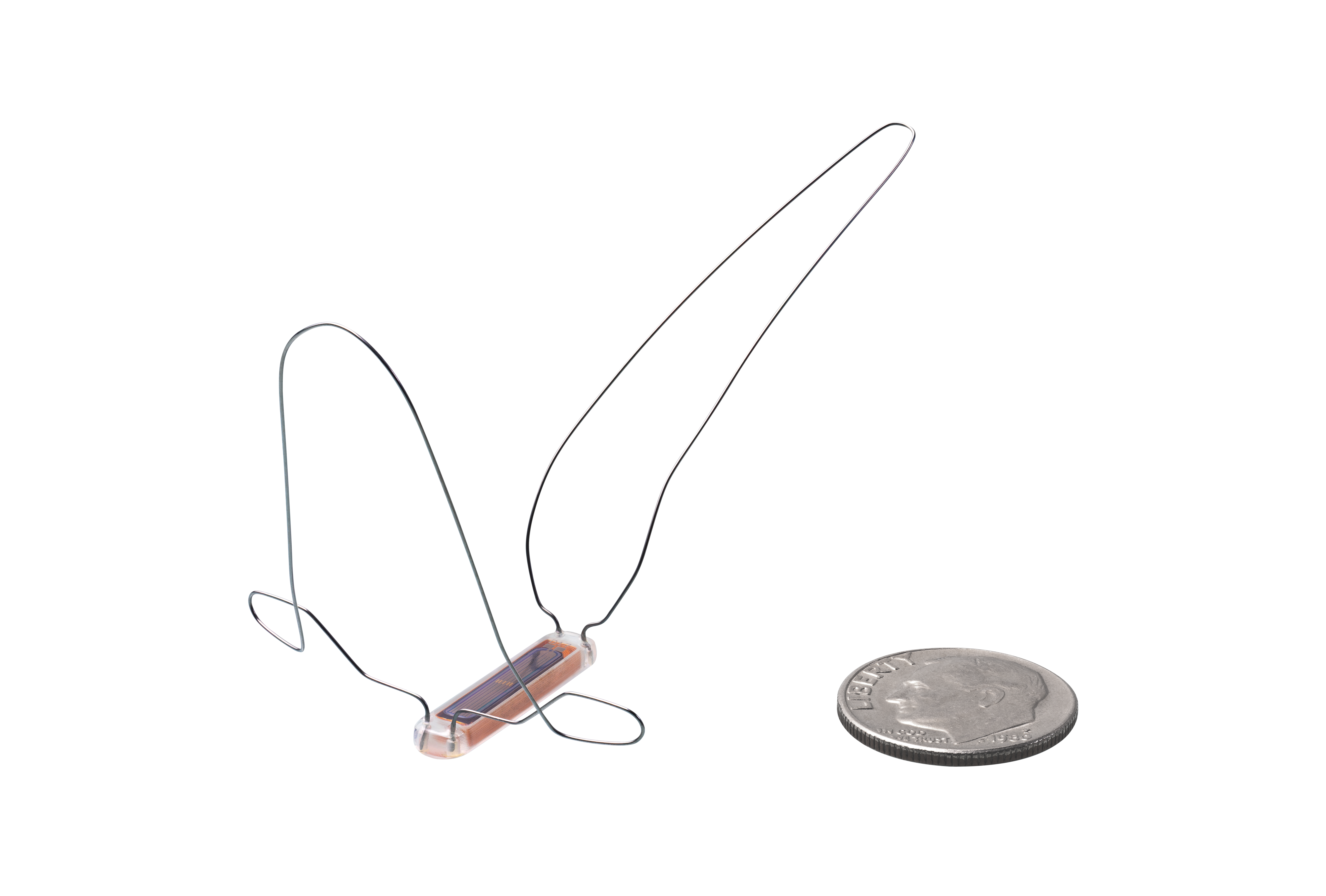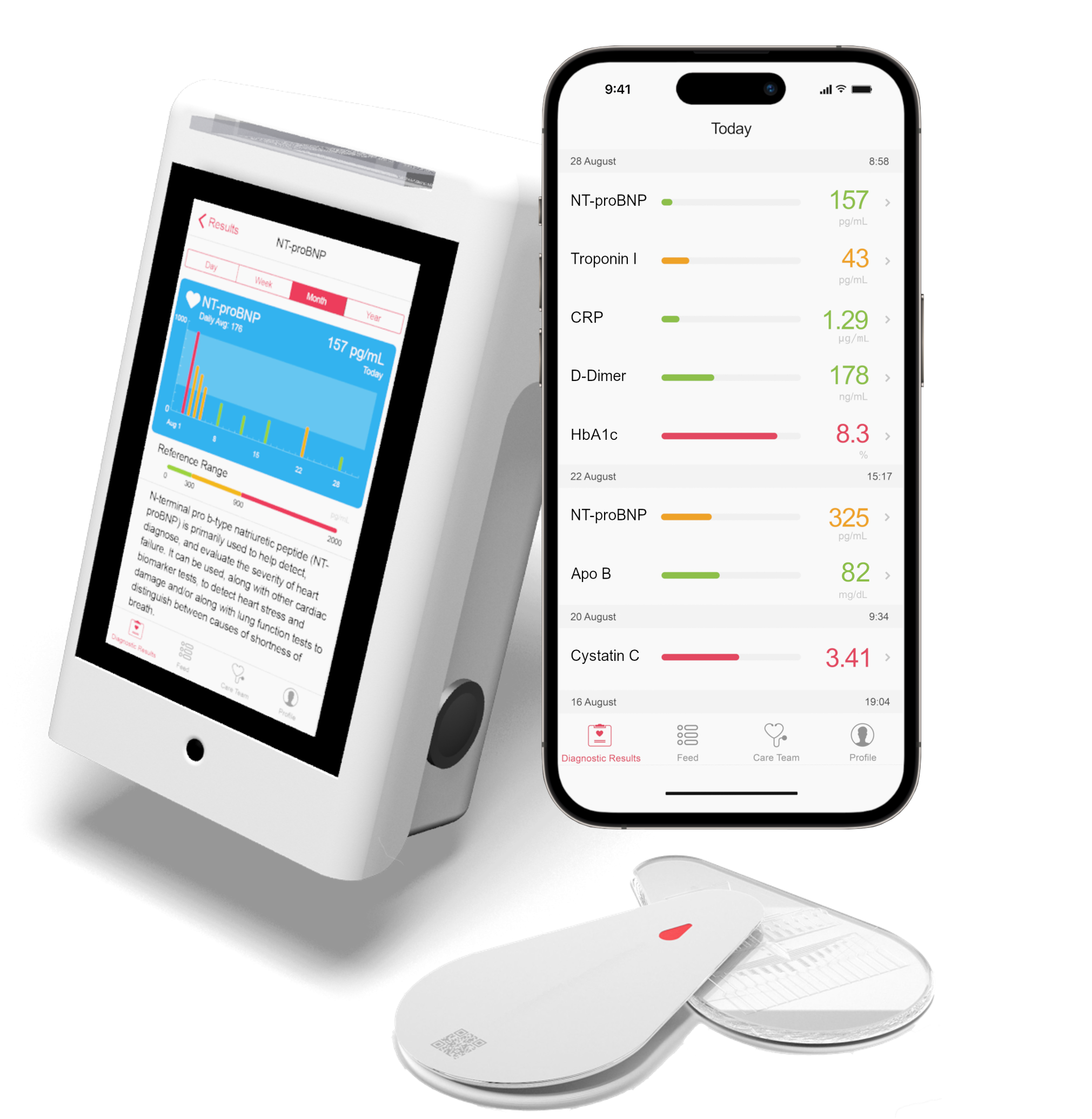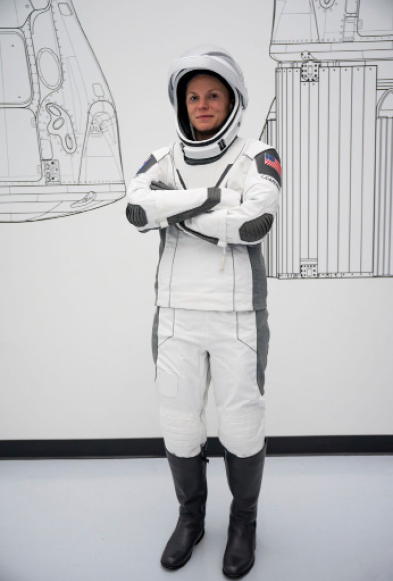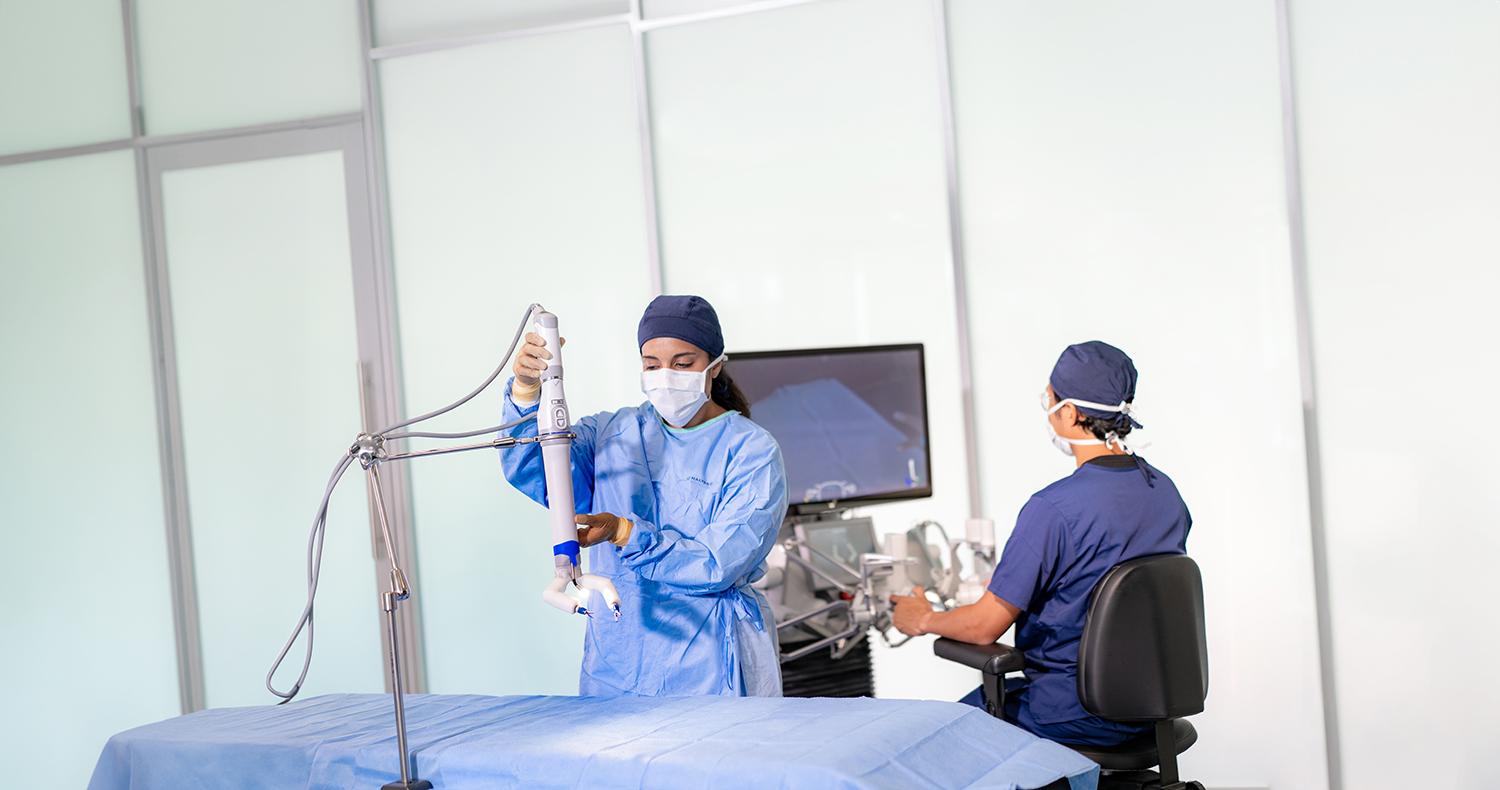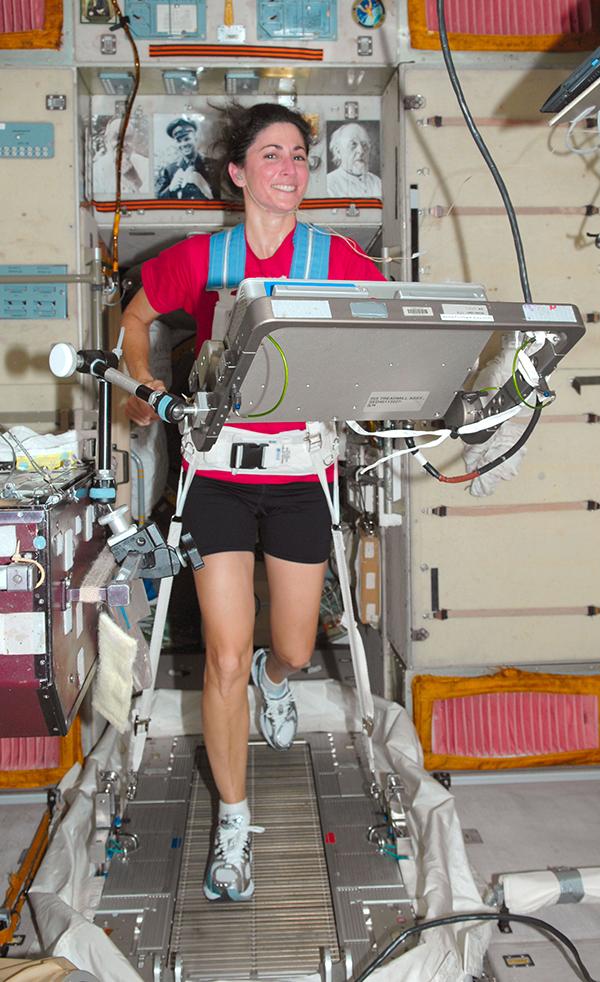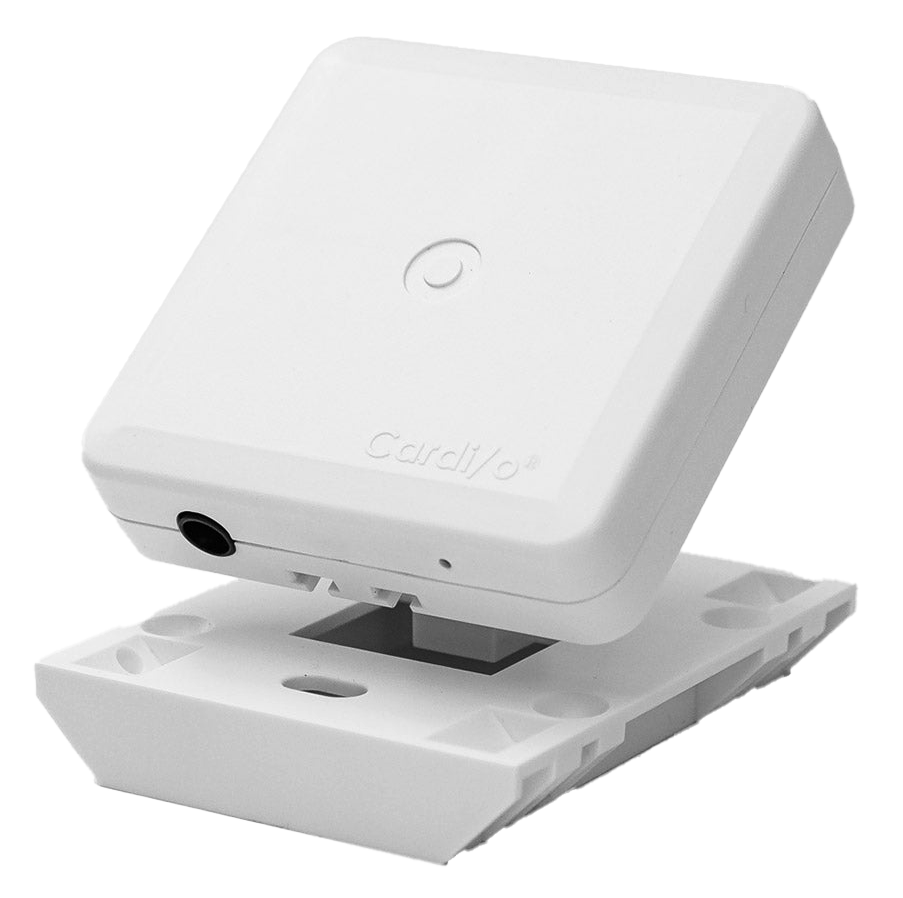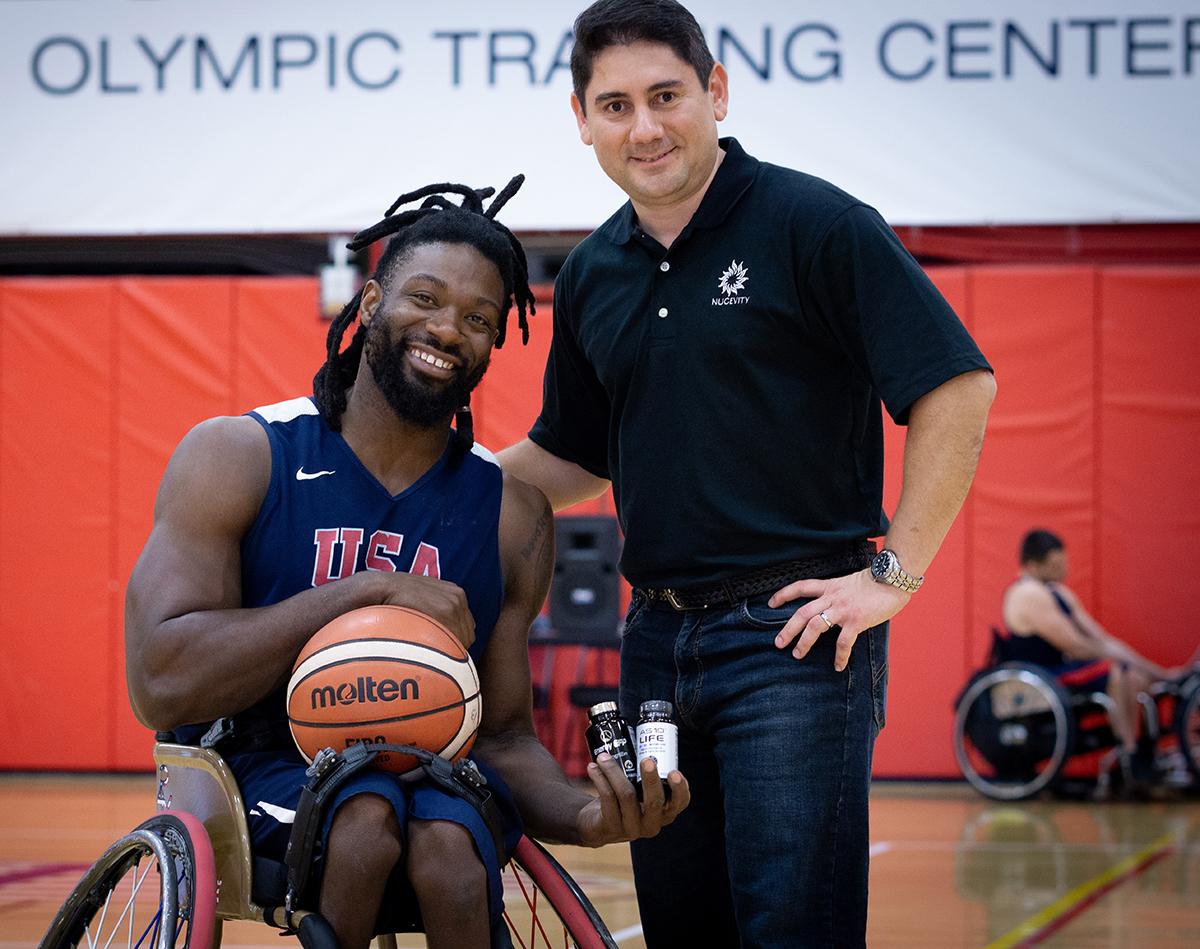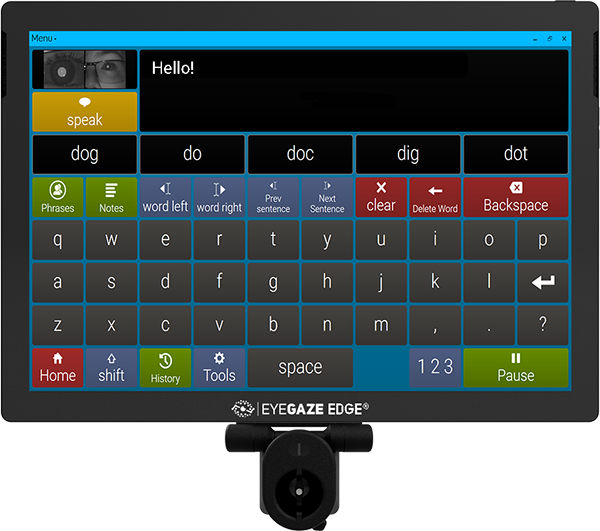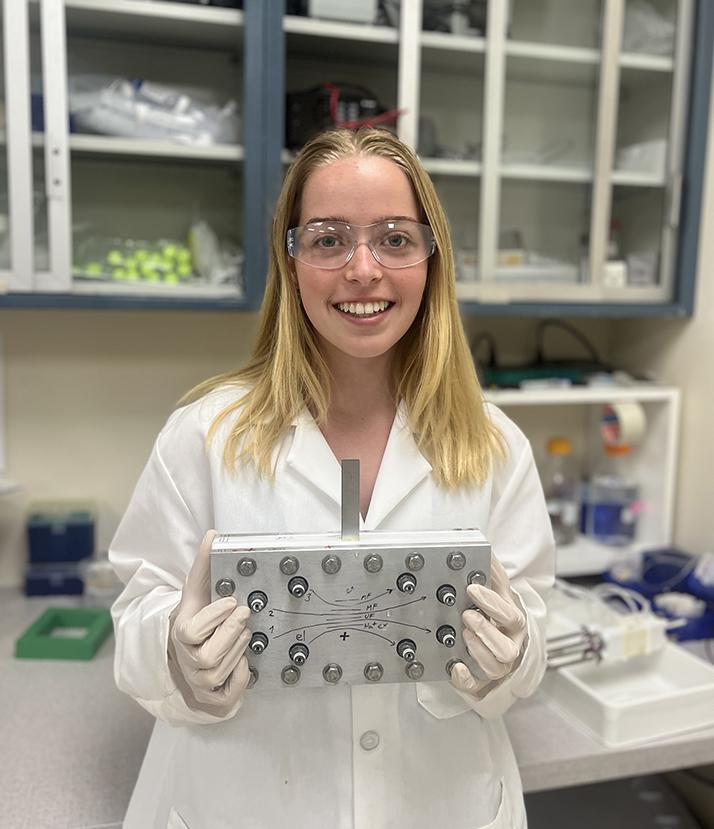Striding Towards Better Physical Therapy
A new rehabilitative device promises to improve physical therapy for patients working to regain the ability to walk after facing traumatic injuries or a degenerative illness. Produced by Enduro Medical Technology, of East Hartford, Connecticut, the Secure Ambulation Module (S.A.M.) creates a stable and secure environment for patients as they stand during ambulation therapy.
S.A.M. is a wheeled walker with a unique harness that supports the patient's body weight and controls the patient's pelvis without restricting hip movement. Electronic linear actuators raise and lower the harness, varying the weight placed on patients' legs. Cable-compliant joints developed at NASA's Goddard Space Flight Center provide S.A.M.'s key element. Consisting of connected cable segments, the joints dynamically connect to the harness, providing stability and shock absorption while allowing for subtle twisting and cushioning.
The late James Kerley, a prominent Goddard Space Flight Center researcher, developed cable-compliant mechanisms in the 1980s for use in sounding rocket assemblies and robotics. This innovative technology uses short segments of cable to connect structural elements. Unlike rigid connections, the cable segments allow movement in six directions and provide energy damping.
Kerley later worked with Goddard's Wayne Eklund and Allen Crane to incorporate the cable-compliant mechanisms into a walker that supported the pelvis. Suffering from severe arthritis himself, Kerley knew that alleviating the weight on the legs was an important part of pain management. The technology allowed the harness to control the pelvis, providing support and stability with compliance that mimicked the movement of the hip joint.
In June 2002, Kenneth Messier, president of Enduro Medical Technology, and Patrick Summers, senior vice president, licensed NASA's cable-compliant technology and walker in order to commercialize the product for medical purposes. The company incorporated the linear actuators into the NASA technology and developed the adjustable patient harness system, enabling it to introduce S.A.M. to the health care industry in March 2003. The product is marketed towards physical therapists and other health professionals treating patients recovering from traumatic brain injury, stroke, spinal cord injury, and hip or knee replacement. Patients living with severe arthritis, cerebral palsy, multiple sclerosis, Lou Gehrig's disease, and Parkinson's disease can also benefit from S.A.M.
Enduro expects its product to revolutionize physical therapy and restorative nursing. Messier explains, "In the past, patients needing ambulation therapy had to be lifted to standing by one or more physical therapists, and be able to prop themselves up using their arms." As a result, the patients risked falling and their therapists risked back injuries. S.A.M. provides patients with the opportunity to stand and walk in a safe and controlled environment without constant assistance from a therapist. The device reduces patient injuries from falls and increases staff efficiency, since a single therapist can bring a patient to a standing position as well as work with multiple patients at the same time.
While providing a safe environment for gait training, S.A.M. can also help improve a patient's balance, coordination, and endurance. The device may enable patients to have longer therapy sessions and more specialized treatment. Some patients can begin ambulatory rehabilitation sooner since they do not need to prop themselves up with their arms to maintain an upright position. Freeing up the patient's arms also allows the upper extremities to be properly positioned during therapy.
S.A.M. contains several features to make it user friendly. The height and width adjustability accommodates patients weighing up to 500 pounds and ranging from 4 foot 6 inches to 6 foot 4 inches tall. The pelvic harness comes in various sizes and is padded with NASA-developed temper foam for comfort. Attachments for an oxygen bottle, IV pole, and urinary drainage bag are included, as well as an additional upper-trunk harness to provide extra stability for patients with severe balance issues. The electronic linear actuators that adjust the patient's weight bearing can be controlled by the patient or the therapist, and the device includes a digital readout of the adjustments. While patients can use S.A.M. to walk across a room or hallway, it can also be used with a treadmill.
Enduro expects the benefits of S.A.M. to be widespread. According to Messier, the company has shown S.A.M. to hundreds of physical therapists at more than 60 facilities, and all of them indicated interest in utilizing the device. Nona Minnifield Cheeks, chief of the Technology Transfer Program at Goddard, states, "This is a great example of how the research essential for the success of the Nation's Space Program can have clear, tangible benefits in people's daily lives here on Earth."
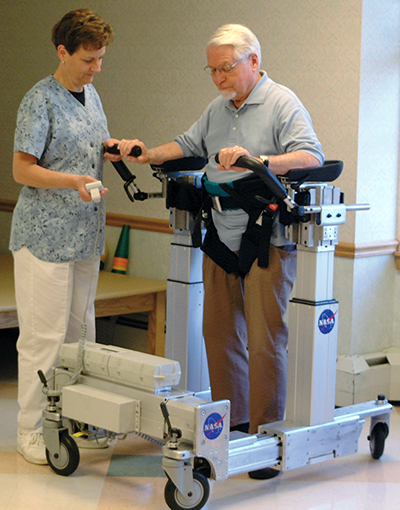
The Secure Ambulation Module creates a stable and secure environment for patients as they stand during ambulation therapy. The device increases staff efficiency, since a single therapist can bring a patient to a standing position.
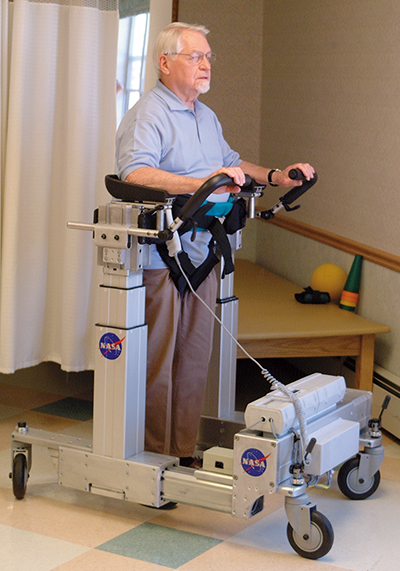
A unique harness on the wheeled walker supports the patient’s body weight and controls the patient’s pelvis without restricting hip movement.




